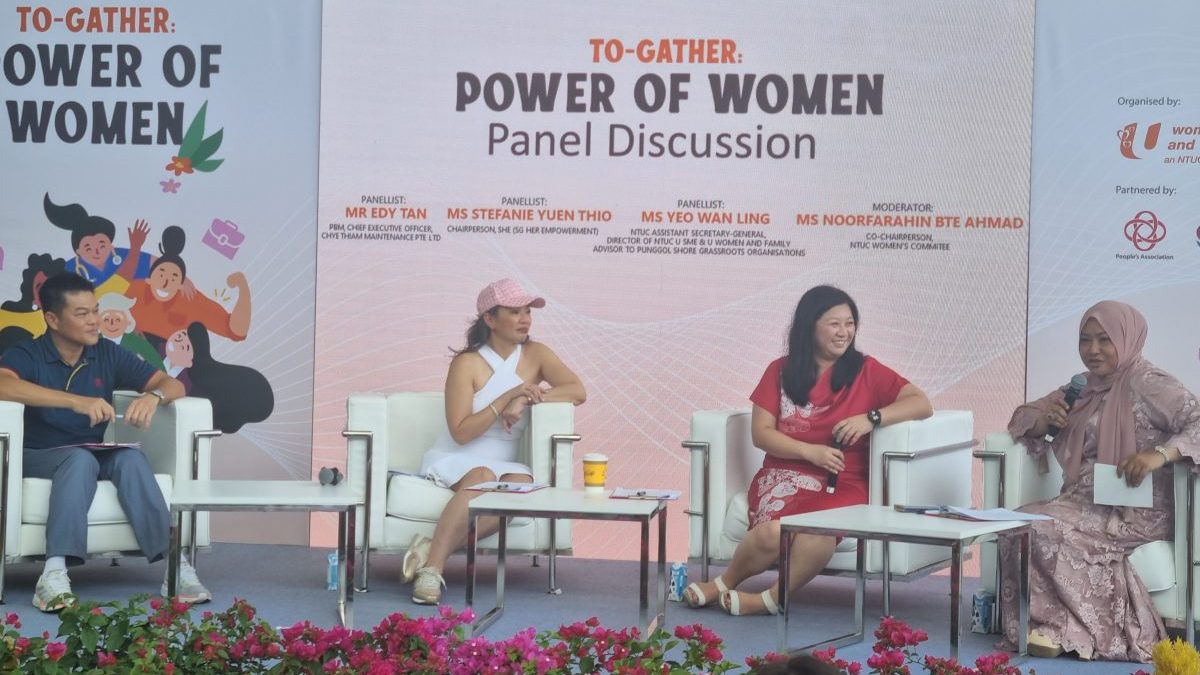@ntucsingapore Catch women empowerment champion Stefanie Yuen Thio’s views on FlexibleWorkArrangements. She’s also working with NTUC to care for women through various initiatives – read more here: bit.ly/3UfHYfH EveryWorkerMatters NTUCCares
As a leading champion of women’s issues, Stefanie Yuen Thio wants you to know how important flexible work arrangements (FWA) are in empowering women with the choice to work.
After all, her non-profit organisation SG Her Empowerment (SHE) strives to empower women through community engagements and partnerships.
As an employer (she runs TSMP Law Corporation), Stefanie also walks the talk by offering FWA to her employees.
An NTUC survey of 1,000 workers conducted in 2023 also reinforces the appeal of FWA, with 85 per cent citing it as their preferred method for balancing work and caregiving.
In a LabourBeat exclusive, Stefanie spills the beans about FWA and her collaboration with NTUC to empower women at work further.
LabourBeat: The upcoming guidelines to give workers the right to request FWA — what’s your take on this?
Stefanie Yuen Thio: I think it’s important that our companies stay competitive by having great employment practices that will encourage people back into the workforce. I think it will be a boon for women because they tend to be the ones with the caregiving duties at home.
The new guidelines on flexible work arrangements will send a very strong signal on what’s expected.
As an employer yourself, what FWA do you give your employees?
What we as an employer try to do is to be as flexible as possible, considering the very specific, customised requirements of that employee.
For example, if it’s mostly a desk job, like accounting or bookkeeping, you can do a lot of that from home. If you are working at the reception desk, we may not have that same degree of flexibility because you need to be around. Our lawyers are generally allowed to have to set their own flexible times.
I wouldn’t encourage employers to have different cookie-cutter models that you can pick flexible arrangement A or B or C; I don’t think that that’s necessarily going to be the best.
Some employers are concerned that FWA will affect productivity and performance. What’s your view?
Just because somebody sits at their desk from 9am to 5pm doesn’t mean that they’re being very productive.
With Zoom, what I think companies and employees need to do is find a new way of engaging with each other, which doesn’t lose the productivity and performance, but enhances your life.
Do you see FWA as an empowerment tool for women?
If one person must stay back and not work, chances are it’ll be the woman. If she’s not a contributor, she’s a second-class economic citizen in her own house.
Let’s say there’s no flexible work arrangements that will allow her to go back to work, the more she gets entrenched in that secondary role.
NTUC U Women and Family (U WAF) and SHE are working together to help women take that step to come back into a more financially empowered position.

How are you working with NTUC to help women return to work?
Singapore has 260,000 women of working age who are not employed in the workforce. For women who are dealing with more basic things like, ‘How do I get back into the workforce?’, ‘What is LinkedIn?’, ‘How do I conduct myself in an interview?’, we thought we could do mentorship circles.
These are going to be regular engagements where women with all sorts of issues, or who just want a friend or want to hang out, can come create a community of mutual support.
You also teamed up with NTUC to help women in a divorce? Tell us more.
I think we’re probably the first country in the world where the Government will step up and help to enforce matrimonial orders [through the Family Justice Reform Act].
This is huge because so many of my friends tell me that after they’ve gotten divorced, part of the problem is the spouse doesn’t give them the money that they’re supposed to be getting.
Working with NTUC U Women and Family, we did a one-day seminar where lawyers and people in the community came and talked about these things, and how it affects women.
Any last words on women empowerment?
I’d like to see a workplace where women are valued the same as men; where gender is not an issue; where women feel safe to be the best versions of themselves; where women don’t feel that they need to be more like a man in order to make it.
Click here to find out more about U WAF’s mentorship circles and other initiatives.

